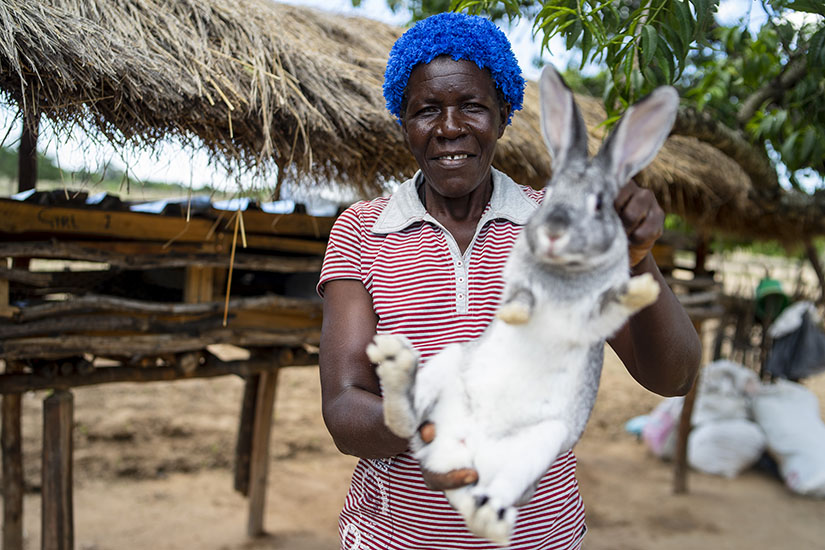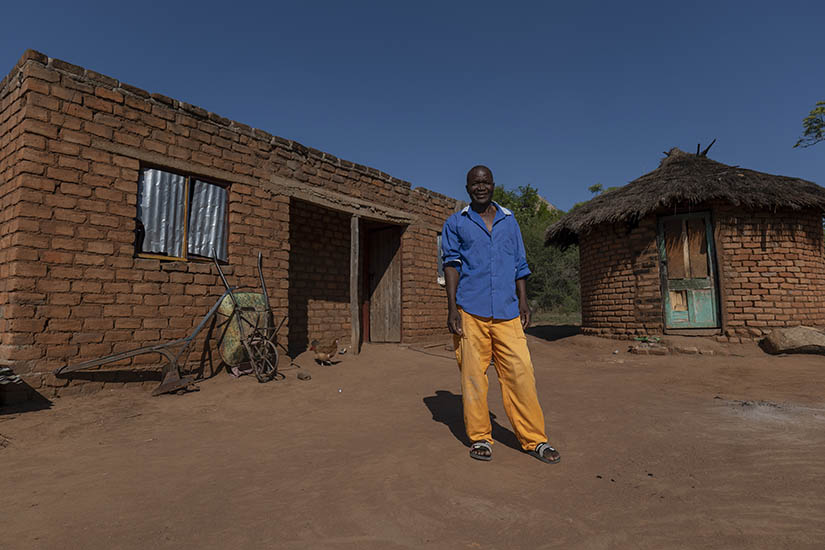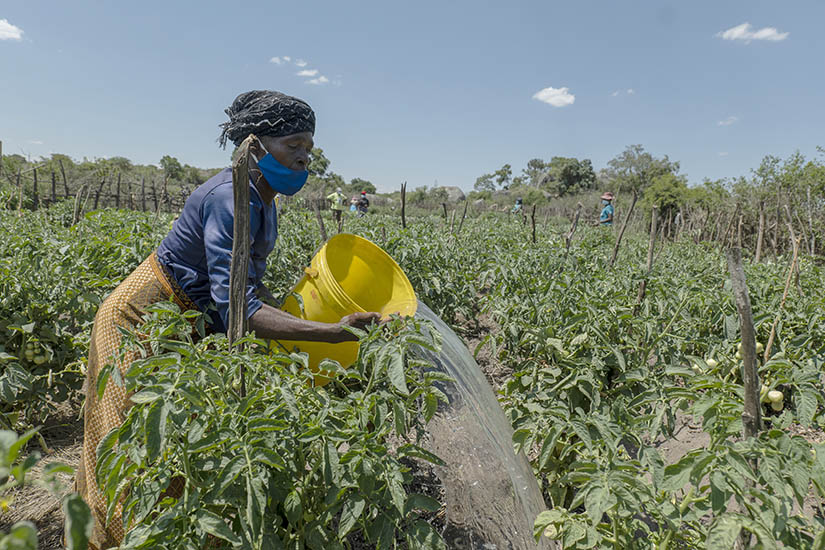Generally, Canadian Foodgrains Bank responses to hunger are either short-term emergency projects or longer-term agriculture and livelihood support programs. But thanks to a $20 million grant from the Government of Canada, Foodgrains Bank members are finding innovative ways to support people in eight countries who are experiencing food insecurity due to COVID-19 and the danger of famine.
The Humanitarian, Early Recovery and Development (HERD) program is serving over 120,000 people in Burundi, Democratic Republic of Congo, Kenya, Nigeria, South Sudan, Madagascar, Pakistan and Zimbabwe. The program combines short-term emergency food assistance with resources and training to support families’ efforts to provide food for themselves in the longer term.
“What’s great about this program, is that our local partners are able to respond to the immediate needs of people, but also work towards long-term solutions that work uniquely for each community,” says Stefan Epp-Koop, program manager.

Eveline Masihoro of Mawere village shows off one of her rabbits from her new rabbit farming operation. (Photo: KB Mpofu)
In Zimbabwe, for example, COVID-19 has resulted in twice as many people dealing with food insecurity than before the pandemic. In the southern Gutu District, Denhere villagers received distribution of Zimbabwe’s staple food maize meal (known as mealie meal) as well as beans and oil over a nine-month period through Foodgrains Bank member United Church of Canada and its local partner Zimbabwe Council of Churches. Program participants like Charles Geri in Chawira village also received agricultural supports to allow them to build long-term food security. Geri and his wife were provided with training and farming inputs like sorghum, finger millet and cowpea seeds to grow their own crops.
In a different ward of the same district, Foodgrains Bank member Emergency Relief and Development Overseas is working with the Pentecostal Assemblies of Zimbabwe (PAOZ) to start a rabbit farming project as part of the HERD program. Friends Eveline Masihoro and Mai Nhamoinesu from Mawere village received food along with ten rabbits and rabbit feed to establish their own rabbit farming operation. With its varied projects and approaches as diverse as the local communities they take place in, the HERD program will take people through the instability of COVID-19 and famine to a more stable food supply in the years to come.

Hatred Chikwenga of Zibhowa village stands in front of his home which he plans to upgrade using income from selling eggs from his new poultry farm. (Photo: KB Mpofu)
To see more photos from these projects, please view our online photo gallery here.
This article was published in Breaking Bread Winter 2022.



